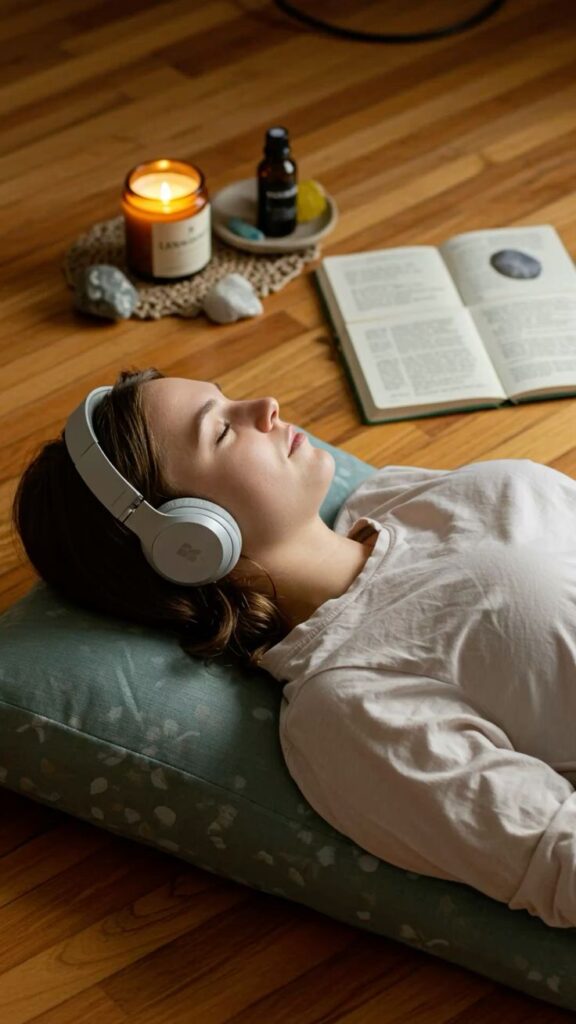In recent years, music therapy in New Zealand has become a trusted, evidence-based approach to supporting mental health and developmental challenges. It is used in hospitals, schools, and communities across the country. As a result, more families and professionals are discovering how music can heal, connect, and empower.
🎼 What Is Music Therapy?
To begin with, music therapy is a clinical intervention where trained professionals use music to help individuals achieve emotional, cognitive, and social goals. Unlike traditional talk therapy, it uses sound, rhythm, and movement to reach people in non-verbal yet impactful ways.
Moreover, it is suitable for all age groups and abilities. In fact, no musical background is needed. Because of its adaptability, therapy sessions are customized to each person’s needs, helping them express, regulate, and grow.

🧠 Supporting Mental Health Through Music
Today, mental health concerns like anxiety and depression are widespread in New Zealand. Thankfully, music therapy provides a safe, creative outlet to manage these conditions gently.
Benefits for Mental Health:
-
🌬️ Reduces Anxiety and Stress
Music influences the brain’s stress response. For instance, slow rhythms can lower heart rate and calm the mind. Therefore, many clients report feeling more relaxed after sessions. -
🧘 Promotes Mindfulness
Through deep listening and rhythmic breathing, clients learn to be present. Consequently, this increases emotional awareness and inner peace. -
🎤 Encourages Emotional Expression
Some emotions are hard to verbalize. However, music therapy allows individuals to explore them through songwriting, drumming, or even silence.
Altogether, these techniques promote emotional healing in a way that is both engaging and effective.
🧩 How It Supports People with Autism
Children and adults on the autism spectrum often face communication and sensory difficulties. Yet, music offers a structured, non-threatening way to connect.
How Music Therapy Helps with Autism:
-
🗣️ Enhances Communication
Through interactive songs and vocal play, therapists help clients develop both verbal and non-verbal skills. -
🤝 Builds Social Interaction
Group music sessions encourage turn-taking, listening, and shared attention. As a result, these skills often translate into real-life relationships. -
🎧 Assists Sensory Regulation
For those with sensory sensitivities, music helps gradually introduce sound and rhythm in a controlled setting. Thus, it improves tolerance and adaptability. -
🔁 Creates Predictable Routines
Repetitive songs and consistent structure provide comfort. Because of this, therapy becomes a safe space for growth.
Clearly, music therapy plays a key role in autism support programs across the country.
📍 Where to Find Music Therapy in New Zealand
Fortunately, access to music therapy is growing in both urban and rural areas. Whether you’re in Auckland, Christchurch, or a remote community, options are available.
Common Places Offering Music Therapy:
-
Hospitals and Clinics
Many public and private facilities offer music therapy, especially in mental health and pediatric departments. -
Special Education Centers
Children with autism or learning disabilities often receive therapy as part of their school programs. -
Private Studios and Online Services
Several therapists now offer remote or mobile sessions. Therefore, help is just a call or click away.
To locate a trained therapist, you can visit the official Music Therapy New Zealand website.
 Call Us: +91 8369064538
Call Us: +91 8369064538
 Website: https://unccn.in
Website: https://unccn.in
 Call Us: +91 8369064538
Call Us: +91 8369064538 Website: https://unccn.in
Website: https://unccn.in